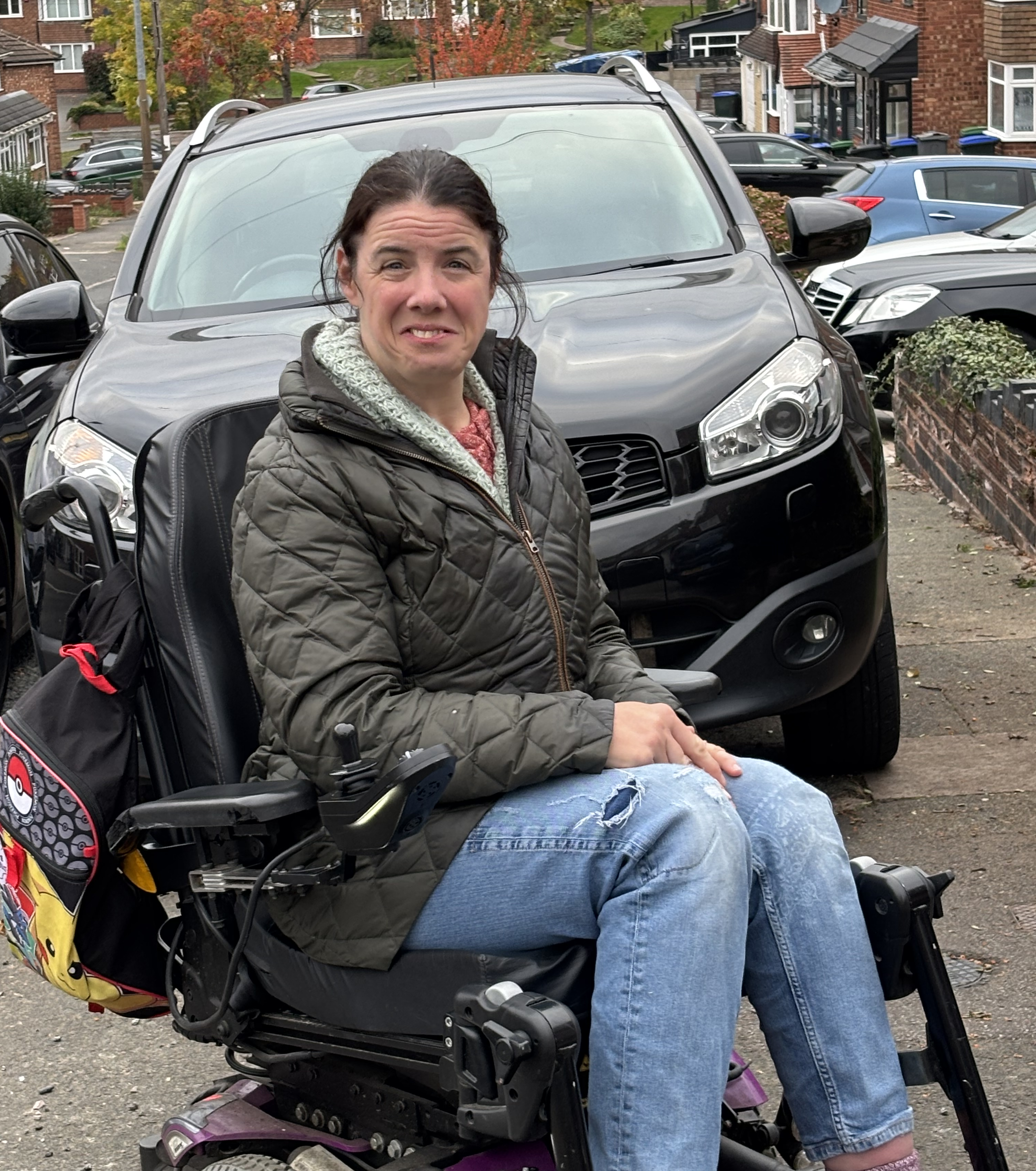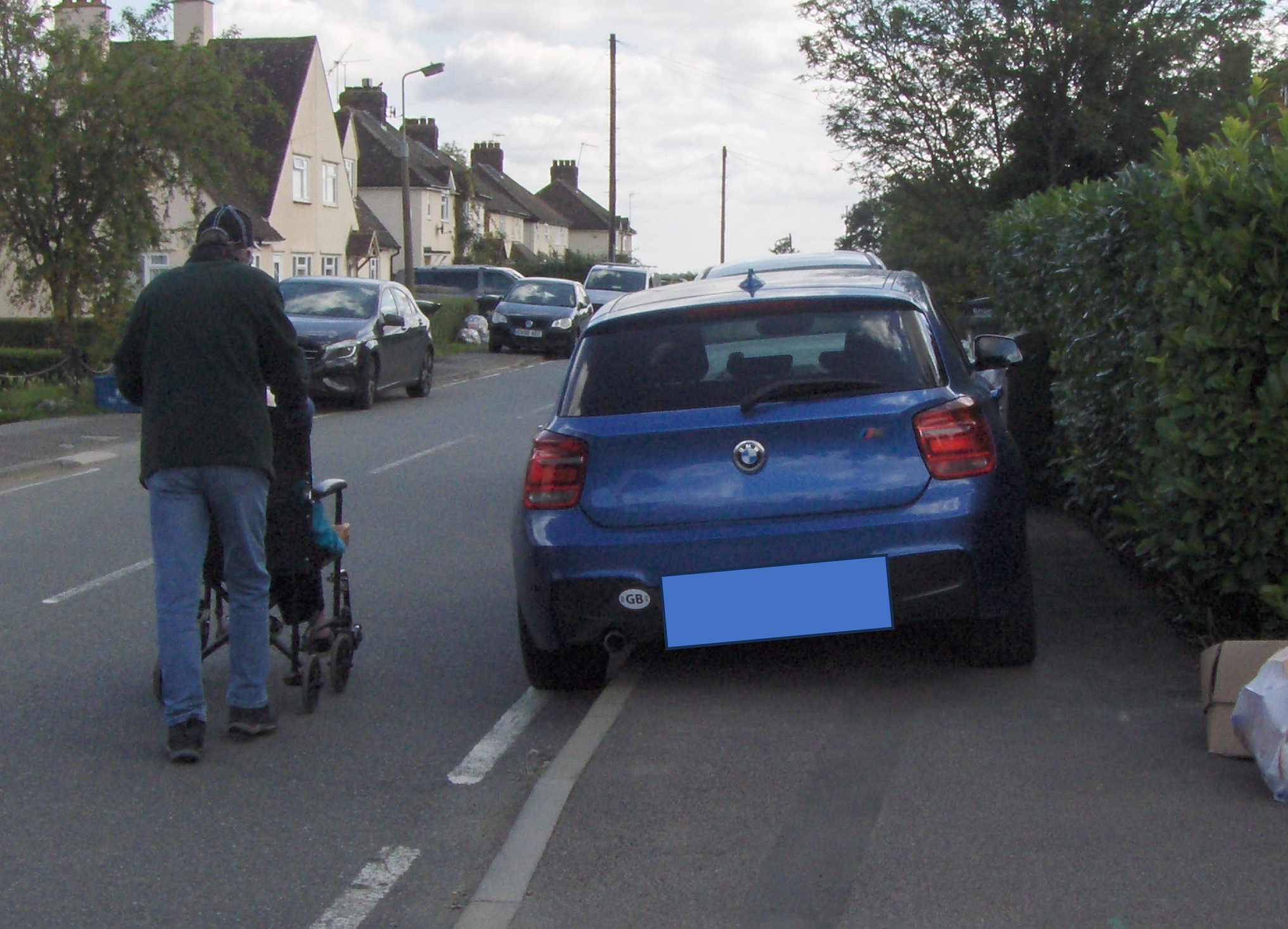Government urged to act on pavement parking after five years of inaction
This week (22 November) marks five years since the Department for Transport’s consultation into pavement parking in England closed, and there’s still no response.
Over 1,500 people have added photos of vehicles parked on pavements to a map of pavement parking ‘hotspots’, in a campaign organised by Living Streets, the UK charity for everyday walking.
“We simply can’t wait any longer for action”, says the charity.
Manchester and Oxford are among the worst offenders, with nearly 200 pins across Greater Manchester. Many of the photos feature cars and vans fully blocking pavements, forcing pedestrians into the road to get around.
Parking on the pavement is illegal in London and Scotland. Elsewhere, the powers local councils have are limited and rarely enforced.
Living Streets, alongside other charities and thousands of members of the public, responded to the Department for Transport’s Managing Pavement Parking consultation in 2020, calling for clear laws and sharing evidence from their supporters about the issues pavement parking causes. Since then, 1,826 days have passed with no response.
Aideen Blackborough is a wheelchair user with cerebral palsy. Pavement parking continues to threaten her safety – and that of her children.
Last year, while on the school run, Aideen fell out of her wheelchair trying to get past a car parked on the pavement.
“I was just trying to take my child to school and get on with my day. The car shouldn’t have been there — I was so shaken and angry.”
This wasn’t an isolated incident. Aideen is regularly blocked from pavements by obstructive parking.
“As a mum and a wheelchair user, this practice puts me and my children in danger every day. I don’t understand why drivers think they can block pavements — they’re for pedestrians.”

As a mum and a wheelchair user, this practice puts me and my children in danger every day. I don’t understand why drivers think they can block pavements — they’re for pedestrians.”

Catherine Woodhead, Chief Executive, Living Streets said:
“This week marked five years since the Government closed its consultation into pavement parking in England. That’s five more years of people being pushed into the road and oncoming traffic.
“Someone isolated in their home due to pavement parking could have lost out on around five million walking steps, with a catastrophic effect on their mental and physical health. We simply can’t wait any longer for action on pavement parking.”
Folkert Veenstra is an accessibility campaigner and Living Streets Trustee. He said:
“Pavement parking forces wheelchair users like me into the road, dodging traffic just to get by. Parents with prams, blind and partially sighted people, older people with walking aids – we’re all being pushed into danger because pavements are blocked.
“I’ve personally faced this countless times: cars parked across pavements and dropped kerbs, leaving me no choice but to navigate into oncoming traffic. It’s frightening. It’s wrong. And it needs to change.”
Eleanor Briggs, Head of Policy, Public Affairs and Campaigns, Guide Dogs said:
“Unsafe and unfair pavement parking continue to force people with sight loss to walk on the road every day while we wait for action following the consultation. We urgently need a clear law across the UK that would empower local councils to tackle pavement parking, allowing everyone to move about their streets independently.”
Rachel White, Head of Policy and Communications, Walk Wheel Cycle Trust said:
"There's cross-party consensus that councils need the power to tackle pavement parking. Now, we need action. The government should amend the English Devolution Bill to bring in this quick, cheap, change to improve people's health and wellbeing and help ensure more people can travel round their communities safely."
Emma Vogelmann, Co-CEO, Transport for All said:
“For many disabled people, cars parked on pavements are barriers to freedom – they lock away our ability to make every day journeys – we simply can’t get past. After five years of hollow words, it’s high time for the Government to finally say pavements are for pedestrians, and give us back our streets.”

